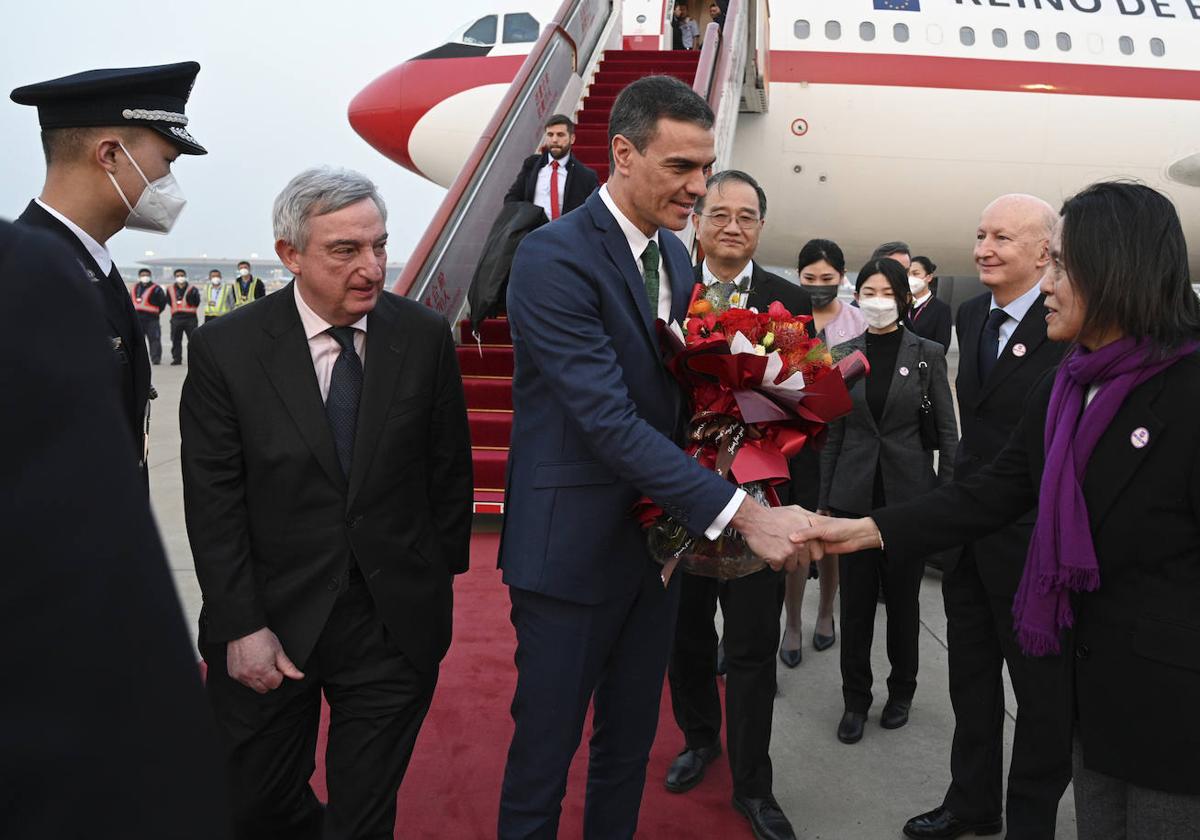Nothing in common
Mark Nayler
Viernes, 31 de marzo 2023, 12:41
Russia's invasion of Ukraine was top of the agenda on Pedro Sánchez's two-day trip to China this week - the first visit from ... a European leader since Xi Jinping's ominous meeting at the Kremlin last week. But if the Spanish premier really hopes to convince Xi to stop the Russia-Ukraine conflict, via negotiations with Vladimir Putin, he's likely to be disappointed.
Sánchez's visit to Beijing comes just days before Spain is due to send several Leopard tanks to Ukraine, a move which has been criticised by the Socialists' coalition partner Podemos. But despite tensions between the two parties over how best to react to the conflict, Sánchez has aligned himself closely with Volodymyr Zelensky. In doing so, he has adopted a position contrary to the interests of China, despite the latter's claim to impartiality and its stated desire to act as a mediator in the conflict.
Xi's visit to Putin on the 21st March left the world wondering what sort of agreement the two have reached over Ukraine. A brief, unscripted exchange outside the Kremlin, after the conclusion of their official talks behind closed doors, provided a clue. "Change is coming that hasn't happened in 100 years and we are driving this change together," said Xi. "I agree," replied Putin.
Foreign correspondent Ian Williams, writing in The Spectator, interpreted these words as a reference to China's "so-called 'century of humiliation' [1839-1949] at the hands of rapacious foreigners". Both Russia and China, he wrote, "share a culture of grievance and victimhood and an almost messianic vision of restoring imperial greatness". Seen in this way, Russia's invasion of Ukraine suits Xi's purposes just fine, as indeed would division within Europe - and within individual European countries' governments - over how to react to the conflict. The more western unity cracks, the better, as far as Russia and China are concerned.
Spain, of course, is just as opposed to China in this respect as it is to Russia. Sánchez is likely to make resolution of the Ukraine conflict a top priority during Spain's six-month presidency of the EU Council, which it takes up in July when Sweden steps down. A Europe united behind Ukraine in its resistance to Russian imperialism, forged during Spain's temporary leadership of the EU, is not a goal that Xi will share with Sánchez.
Hard as it is to see how Sánchez will find common ground with Xi over Ukraine, the Socialist leader will also want to maintain Spain's economic ties with China. He won't want another Algeria on his hands - that is, another beneficial trade relationship weakened by provocative territorial allegiances. But in lining up with Zelensky in defiance of Putin, Sánchez has already taken sides against Xi.
¿Tienes una suscripción? Inicia sesión
